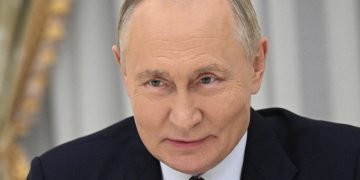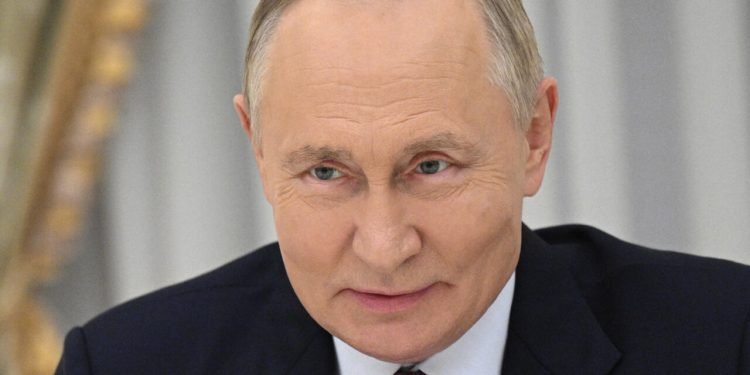In a statement that could reshape global nuclear policies, Russian President Vladimir Putin suggested that his country might consider an attack from a non-nuclear state, supported by a nuclear-armed nation, as a “joint attack.” This statement, perceived as a veiled threat to employ nuclear weapons in the ongoing war in Ukraine, has raised concerns about an escalation in the conflict.
On Wednesday, Putin announced that Russia is reviewing the conditions under which it would deploy its nuclear arsenal, hinting at potential changes in its nuclear doctrine. Currently, Ukraine, a non-nuclear state, receives significant military backing from nuclear-armed nations such as the United States. Putin’s remarks come at a time when Kyiv is actively seeking approval to use long-range Western missiles to strike military targets within Russian territory.
Ukraine’s President, Volodymyr Zelensky, traveled to Washington this week for talks with U.S. President Joe Biden. The use of long-range missiles by Ukraine is expected to be a key topic in these discussions, especially as Ukraine has been pushing further into Russian-held areas and wants to neutralize missile bases that have been targeting Ukrainian cities.
Reacting to Putin’s comments, Andriy Yermak, chief of staff to President Zelensky, remarked that Russia has resorted to “nuclear blackmail” to intimidate the international community. Ukraine has repeatedly accused Russia of using nuclear threats to discourage Western nations from extending more military support.
Meanwhile, China, a key Russian ally, has called for restraint, with reports suggesting that Chinese President Xi Jinping has cautioned Putin against taking the nuclear route. Despite these calls for calm, Putin’s latest statements have reignited fears of nuclear escalation.
During a meeting with his Security Council, Putin unveiled a proposal to broaden Russia’s nuclear doctrine. Under the new policy, Russia would consider the use of nuclear weapons in response to conventional missile strikes that pose a severe threat to its sovereignty. This includes scenarios where a non-nuclear state, with the backing of a nuclear power, launches attacks on Russian soil.
Putin emphasized that Russia’s nuclear arsenal remains the cornerstone of its national security, ensuring the safety of both the state and its citizens. He also reiterated that Russia would respond decisively to any threat, stating, “Aggression against Russia by any non-nuclear state, but with the participation of a nuclear state, will be treated as a joint attack.”
Since World War II, nuclear deterrence has been the primary strategy for preventing large-scale conflicts between nuclear-armed nations. However, recent developments suggest that Russia may be prepared to use smaller, tactical nuclear weapons, which are designed to target specific military installations without causing widespread radioactive fallout.
In June, Putin issued a stern warning to European nations backing Ukraine, highlighting that Russia possesses more tactical nuclear weapons than any other European nation, even if U.S. forces are taken into account. At that time, he hinted at the possibility of revising Russia’s nuclear stance, a move that now seems imminent.
As the war in Ukraine intensifies, Putin’s latest comments could shift the delicate balance of global nuclear policy, sparking new concerns over the risks of escalation in a conflict that has already seen devastating consequences for both Ukraine and Russia.























